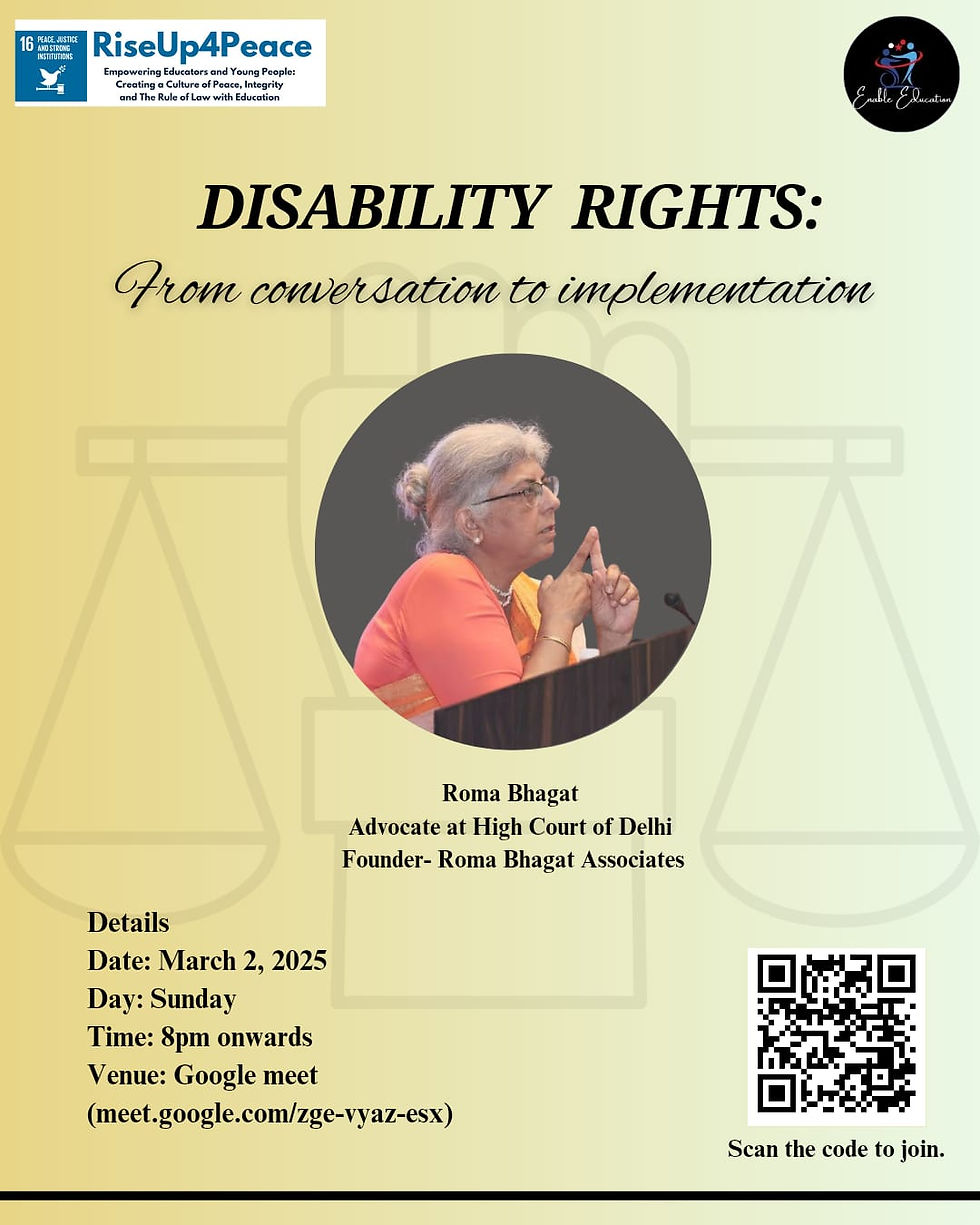Disability Rights: From Conversation to Implementation
- Aarushi Gambhir 15
- Mar 21, 2025
- 2 min read

On February 2, 2025, Enable Education hosted an insightful dialogue on the topic "Disability Rights: From Conversation to Implementation." The event featured Ms. Roma Bhagat, an Advocate at the Delhi High Court and the founder of Roma Bhagat Associates. Ms. Bhagat commenced the discussion by sharing her experiences in the field of disability rights, highlighting the numerous challenges encountered by individuals with disabilities within the Indian judicial system. She elaborated on the systemic barriers that persist in legal practice, both in terms of physical infrastructure and societal attitudes, which continue to hinder the full participation of disabled individuals as lawyers and litigants.
Ms. Bhagat emphasized that despite their competence, lawyers with disabilities often struggle to establish their credibility in the courtroom. Simultaneously, litigants with disabilities frequently face skepticism regarding their testimonies, with their statements being considered unreliable. These obstacles highlight the urgent need for systemic changes to ensure that people with disabilities can exercise their legal rights effectively and without prejudice.
A significant aspect of the discussion revolved around the Rights of Persons with Disabilities Act of 2016. Ms. Bhagat described this legislation as a pivotal moment in the Indian Disability Rights Movement, as it sought to establish concrete implementation mechanisms. However, she noted that while the Act provides a robust legal framework, its practical execution remains in its infancy. She underscored the role of advocacy in driving progress, as the disabled community in India has had to consistently mobilize to demand the rights guaranteed to them under the Indian Constitution. The collective effort of the disabled community has been instrumental in pushing for the enforcement of these rights and ensuring they are not merely theoretical promises but tangible entitlements.
During the discussion, Ms. Bhagat was asked about the measures legal professionals can adopt to enhance accessibility for individuals with disabilities. She stressed the importance of understanding context and appropriate nomenclature when engaging with disabled individuals. For example, a deaf person who does not communicate through verbal language cannot be expected to provide a statement with absolute verbal clarity. The legal fraternity must undergo training in inclusive communication strategies to ensure that individuals with disabilities have an equitable opportunity to present their case and access justice without unnecessary hurdles.
Despite the persistent barriers, Ms. Bhagat expressed optimism about the future of disability rights within the Indian legal system. She believes that with sustained momentum and continued efforts from both advocates and policymakers, significant reforms will take place to ensure the legal system is more accessible and inclusive. She emphasized that progress is being made, and if the current pace is maintained, India will witness a transformation in how justice is accessed by and for people with disabilities.
The discussion concluded on a hopeful note, reinforcing the idea that disability rights should not remain a mere topic of conversation but should translate into tangible action. Ms. Bhagat’s insights underscored the necessity of persistent advocacy, awareness, and legal reform to ensure that the Indian legal system evolves into a space that truly accommodates and upholds the rights of individuals with disabilities.





Comments